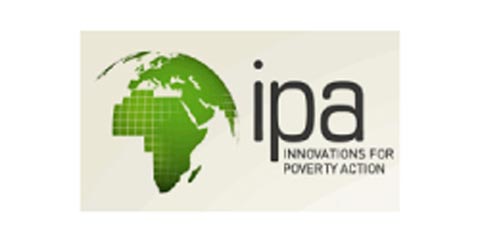Purpose
To design and test ways to better organize markets for sanitation services in peri-urban communities in order to improve the pricing of and access to sanitation services.
Activities
Information from December 2015:
In this project, we measure the impact of alternative pricing models and information interventions on prices and use of improved sanitation services by households not connected to sewer networks in peri-urban areas in two towns in West Africa.
In Accra, Ghana, which has a more advanced sanitation service market, we introduce a call center system aimed at improving linkages between desludging providers and customers, and test the impact on desludging prices, customer satisfaction, and desludger business revenue. We will measure the underlying values of services for customers, measure the cost of providing services for desludging operators, and measure the impact of information on the level of satisfaction of households with their desludging operators and whether they continue to use them on future desludgings.
In Ouagadougou, a less developed market compared to Accra where manual desludging is still prevalent, we test the effect of alternative pricing models on take-up of mechanical desludging, and willingness to pay for sanitation services. We design two pricing treatment structures, one with fixed prices set based on household characteristics, and another with desludger bidding and negotiations with desludgers for lower prices. The fixed prices are set based on household characteristics; this treatment is designed to allow governments to target subsidies to poor households while financing some of the subsidies through price discrimination toward wealthier households. We will test whether these pricing structures, developed based on the underlying factors in the economy, perform better than the control group which has no pricing intervention in terms of total take-up of mechanized desludging.
Project update in November 2017:
Molly Lipscomb presented her results on a study on how
subsidies encouraged households to adopt mechanized onsite
pit / septic tank emptying in Ouagadougou. Through
a targeted subsidy approach the study was able to minimize
the budget necessary by targeting the poorest households for
subsidies, include the wealthy households in the market and
charge them higher rates and instigate increase competition to
lower procurement costs. The research contributes to the set of
evidence-based interventions that cities can use, with limited
budgets, to improve the effectiveness and equity (i.e. pro-poor
impact) of their programs.
Countries of activity
Location of main activity
Objectives
The goal of our research is to design and test ways to better organize markets for sanitation services in order to improve the pricing of sanitation services, improve access to sanitation services, and increase household welfare in peri-urban households not connected to sewer networks.
Objectives:
- In Ghana, the project will identify and test strategies to address inefficiencies in the market for sanitation services, thereby increasing access and affordability.
- In Burkina Faso, the project will identify and test strategies to encourage households to switch from manual to mechanized desludging.
Further information
Research or implementation partners: Water and Sanitation for Africa (WSA), Accra Metropolitan Authority, Office National de l'Eau et de l'Assainissement (Ouagadougou, Burkina Faso), University of Virginia Batten School of Public Policy, University of Notre Dame
Contact information
Molly Lipscomb
Login to see the e-mail-adress of the contact person.
Filter tags
Bill & Melinda Gates Foundation Emptying and transport (non sewered) Faecal sludge treatment processes Market development Peri-urban Specific to one or several countries Sub-Saharan Africa Treatment of faecal sludge University, education or research institution
Attached files
Links

Uploaded by:
Elisabeth von Muench (Elisabeth)














